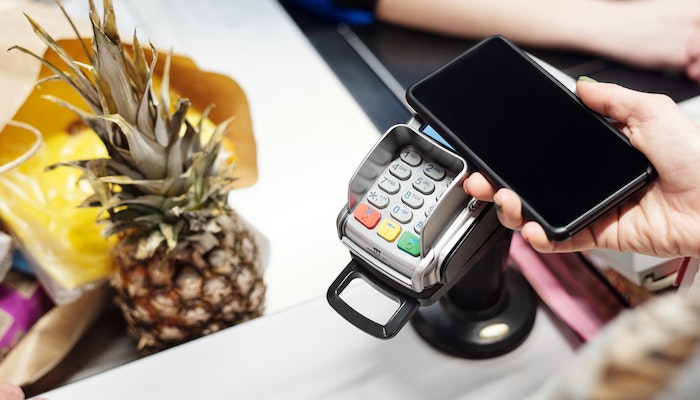In today’s rapidly evolving business landscape, traditional cash-based transactions are giving way to innovative payment solutions. As technology advances and society becomes increasingly cashless, businesses are venturing into new realms of seamless and secure transactions. This exploration delves into emerging payment methods, such as contactless payments and blockchain-powered systems, highlighting their potential and implications for businesses of all sizes. Join us as we navigate this transformative journey, uncovering the benefits, challenges, and opportunities in the future of the payments business.
How are the Payments for Business Evolving?
Payment businesses are undergoing a remarkable evolution, driven by technological advancements, and changing consumer preferences. Traditional payment business methods, such as cash and checks, are gradually being replaced by digital alternatives that offer increased convenience, speed, and security. Here are some key ways in which payments for business are evolving:
- Digital Payments: The shift towards the digital payment business is gaining momentum. Businesses now accept credit and debit cards, mobile wallets, and online payment business platforms, providing customers with convenient ways to transact. Digital payments eliminate the need for physical currency, reducing costs associated with cash handling and providing businesses with real-time transaction data.
- Contactless Payments: With the rise of Near Field Communication (NFC) technology, contactless payments have become increasingly popular. Businesses are adopting payment terminals allowing customers to make payments by tapping their contactless-enabled cards or mobile devices. This touchless and quick payment method enhances the customer experience and reduces transaction time.
- Mobile Payments: Mobile payment business solutions, enabled through smartphones and apps, are transforming how businesses accept payments. Customers can use their mobile devices to make purchases in-store or online, and businesses can send invoices or accept payments through mobile apps. Mobile payments provide flexibility, convenience, and a seamless user experience.
- E-commerce and Online Payments: The growth of e-commerce has revolutionized the way businesses operate. Online payment gateways and digital wallets enable businesses to accept payments securely through their websites or mobile apps. This expansion of digital channels has opened new opportunities for businesses to reach global markets and engage with customers worldwide.
- Blockchain Technology: Blockchain-based payment business systems are emerging as a disruptive force in the payment industry. Businesses can facilitate secure, transparent, and efficient peer-to-peer transactions by leveraging decentralised ledgers, cryptocurrencies, and smart contracts. Blockchain technology offers the potential to streamline cross-border payments, reduce transaction costs, and increase trust in the payment process.
- Enhanced Security Measures: As digital payments proliferate, ensuring robust security measures is crucial. Payment technologies continuously evolve to incorporate advanced encryption, tokenization, biometric authentication, and fraud detection systems. These measures aim to protect sensitive customer data and mitigate the risks associated with payment fraud and identity theft.
How to Track Business Payments?
Track business payments require specific approaches tailored to the digital realm. Here are some practical methods for monitoring business payments when transactions are conducted entirely online:
- Online Payment Platforms: If your business utilizes online payment platforms, then these platforms typically provide comprehensive transaction history and reporting features. Log in to your account and access the transaction records to track and categorize payments, view customer details, and generate reports.
- Payment Gateway Integration: If your business operates an e-commerce website, integrate a payment gateway with transaction tracking capabilities.
- Automated Invoicing: Implement a computerised invoicing system that tracks online payments. When customers make online payments, the system can automatically update the payment status and generate receipts. This provides an organized record of received amounts and facilitates reconciliation.
- Bank Notifications: Set up email or text notifications from your business bank account for incoming online payments. Many banks offer real-time notifications when funds are received, allowing you to track expenses as they occur. These notifications can be linked to your accounting software or spreadsheet for easy record-keeping.
- Real-Time Reporting: Utilize real-time reporting features in your online payment platforms or e-commerce systems. These reports provide up-to-date information on payments received, pending charges, and payment trends. Analyzing these reports helps you monitor cash flow, identify outstanding payments, and manage financial operations effectively.
- Accounting Software Integration: Integrate your online payment platforms or gateways with your accounting software. This integration allows for seamless synchronization of payment data, eliminating the need for manual entry. It ensures accurate and up-to-date recording of online payments in your financial records.
How to Select the Best App for Payments?
When selecting the best app for payments business, consider the following:
- Choose an app with strong encryption and fraud detection measures.
- Ensure compatibility with preferred payment methods.
- Look for seamless integration with existing systems.
- Prioritize a user-friendly interface for both you and your customers.
- Seek robust reporting tools for insights into sales and performance.
- Verify prompt and reliable customer support.
- Compare transparent pricing and transaction fees.
- Confirm the app can accommodate future business growth.
- Research user feedback and provider reputation.
- Ensure adherence to relevant financial and data protection regulations.
Conclusion
Now that you know everything about payment business, how to track business payments and how you can select the best app for payments, you are all set to equip your business with the best solution. Visit the HDFC Bank today and benefit from their SmartHub Vyapar App, designed to equip businesses to make and track seamless payments. So, what are you waiting for? Contact HDFC Bank today!

